Garage Door Rollers: Mastering the Move for Seamless Entry
What are garage door rollers?
Positioned on either side of your garage door, these rollers are small, yet powerful wheels, attached to the door via brackets and fit snugly into the door’s side tracks. As you open or close the door, the garage door rollers glide smoothly along these tracks, enabling the door to move up and down without a hitch. Made from various materials like nylon, steel, plastic, or even rubber, these rollers vary in size, durability, and noise levels. In essence, they play a pivotal role in the mechanics of your garage door system. Garage door rollers ensure your garage door operates seamlessly. Without them, your door would merely be a static structure.
Importance in the smooth functioning of garage doors
These rollers contribute to a lot of conveniences. First and foremost, they reduce friction ensuring that there’s less strain on the garage door opener, so it lasts longer and works more efficiently. Moreover, they play a significant role in ensuring that the door remains aligned to its tracks. A door out of its tracks can lead to major operational issues, potential damage, and even safety concerns. In essence, the rollers are guardians of both functionality and safety when it comes to your garage door.
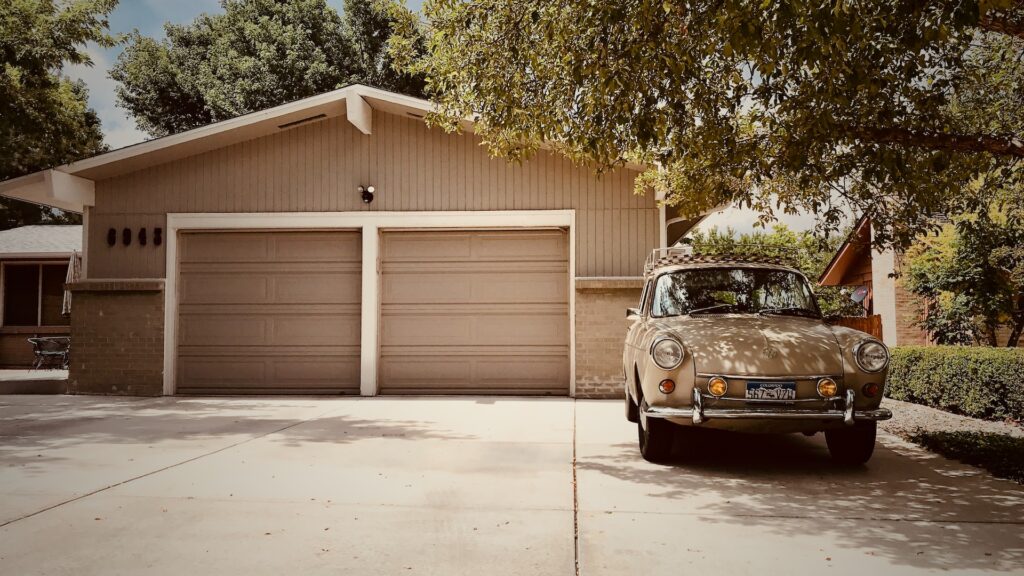
Different Types of Garage Door Rollers
Nylon Rollers
What’s to love: Nylon rollers are renowned for their silent operation. Compared to their steel counterparts, they make for a quieter morning departure or evening return. If you’re someone who cringes at the grinding noise of metal, nylon might be your friend.
Things to consider: While they require less maintenance due to their self-lubricating nature, they might not be the best for extremely heavy doors. The durability can vary, with some high-quality nylon rollers offering ball bearings that extend their lifespan.
Steel Rollers
What’s to love: Strength is the name of the game here. Steel rollers are robust and durable, making them perfect for those heavy-duty, weighty garage doors. Their resilience means they can stand up to rigorous daily use without faltering.
Things to consider: The trade-off for their strength is the noise. Steel rollers tend to be noisier than nylon ones, especially if not regularly lubricated. Additionally, they can be susceptible to rust in humid climates, which can affect their performance and lifespan.
Plastic Rollers
What’s to love: The key advantage? Cost-effectiveness. If you’re on a budget, plastic rollers can be an appealing choice. They don’t have ball bearings, which makes their design simpler and their installation straightforward.
Things to consider: The trade-off for affordability is durability. Plastic rollers are best suited for lighter doors and aren’t known for their longevity. Regular replacements might be on the cards if you opt for these.
Rubber Rollers
What’s to love: A middle ground between nylon and steel, rubber rollers offer a blend of strength and noise reduction. They’re especially handy if you live in areas with fluctuating weather conditions, as they are resistant to the elements.
Things to consider: While they offer a good balance of features, they may not excel in any particular category. They might not be as quiet as nylon or as robust as steel. It’s essential to weigh your priorities before choosing rubber.
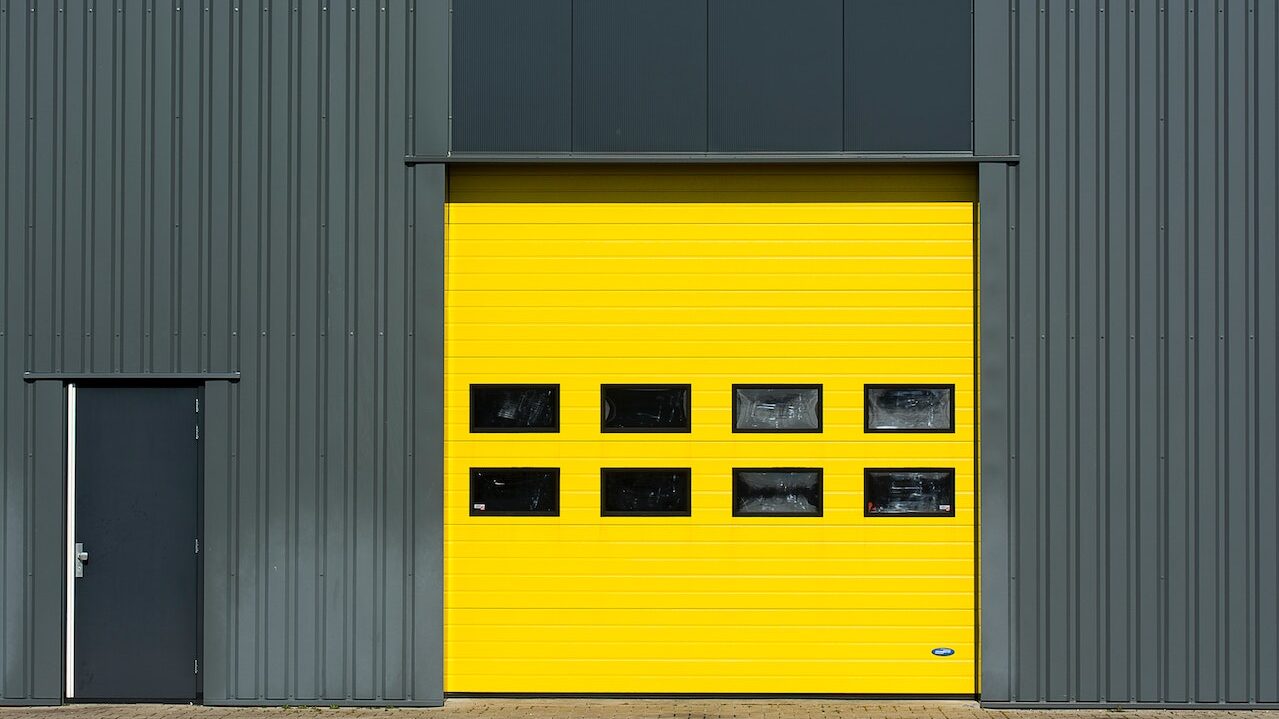
Signs Your Rollers Need Replacement
Much like every component in a machinery system, garage door rollers aren’t immortal. Over time, with wear and tear, they can give out hints that they’re ready to retire. Recognizing these early signs is crucial to ensure the optimal functioning of your garage door and, more importantly, to prevent potential hazards. Let’s delve into the tell-tale signs that your rollers might be needing a replacement.
Unusual Noises
What to look out for: A smoothly operating garage door is a quiet one. If you start hearing grating, grinding, or squeaking noises every time you open or close the door, it’s a clear warning. These sounds typically indicate worn-out or misaligned rollers.
Difficulty in Opening or Closing
What to look out for: When rollers are in their prime, the movement of the garage door is seamless. If you find yourself exerting extra force to open or close the door, or if the door seems to “stick” or stutter, the rollers could be the culprits.
Visible Wear and Tear
What to look out for: Give your rollers a visual once-over from time to time. Look for signs like chips, cracks, or visible deterioration in the wheel or the stem. Rust on steel rollers or flat spots on plastic or nylon rollers are also warning signs.
Wobbly or Shaky Door Movement
What to look out for: A well-functioning roller system will keep your garage door’s movement steady. If you notice the door shaking or wobbling excessively as it operates, it’s likely that one or more rollers are damaged or misaligned.
Aging Rollers
What to look out for: While this isn’t a “symptom,” it’s a good practice to be aware of the age of your rollers. If they’ve been serving you for 5-7 years or more, consider a preemptive replacement, especially if they’re showing any of the above signs.
Partially Out of the Track
What to look out for: Rollers that are wearing out might not sit perfectly within the track. If you observe any rollers not snugly fit or popping out partially, it’s a clear indication they’re past their prime.
Increased Vibration
What to look out for: Excessive vibration during the door’s operation might be a sign of deteriorated rollers. Over time, this vibration can lead to other issues, like loosening hardware or further misalignment.
Choosing the Best Roller for Your Garage Door
Selecting the right roller for your garage door is not just about opting for the most popular or the priciest. It’s about understanding your unique requirements and finding a roller that complements them. Here’s a guide to ensure you choose the best fit:

Consider the Weight of Your Door
Lightweight doors: If you have a lightweight door, such as one made of aluminum or thin steel, nylon or plastic rollers might suffice. These rollers, while not as durable as steel ones, can handle lighter weights with ease.
Heavier doors: For solid wood, insulated, or double-car garage doors which are heavier, you’d need something robust. Steel or heavy-duty nylon rollers with ball bearings are designed to bear substantial weights, ensuring smooth operation and longevity.
Keep Local Weather Conditions in Mind
Humid and Salty Areas: If you live near the coast or in a humid area, rust can be your roller’s enemy. Consider rollers that are rust-resistant or made of materials like nylon which don’t corrode.
Extreme Temperatures: Fluctuating temperatures can affect the flexibility and performance of some rollers. If you’re in an area with scorching summers or freezing winters, consider all-weather rollers, like those made of specific rubbers, that are resistant to temperature-induced wear.
Maintenance is Key
Self-lubricating Rollers: Rollers with sealed bearings are a good choice. They remain lubricated, reducing the need for regular maintenance and ensuring smooth operation for years.
Regular Maintenance Needed: Some steel rollers, especially those without sealed bearings, might require periodic lubrication to prevent them from getting noisy or jamming. If you’re not up for the maintenance routine, these might not be your best bet.
My Personal Recommendations
Over the years, I’ve seen numerous brands step up their game in the garage door roller industry. However, a few have managed to consistently set the bar high with their impeccable quality and rave reviews. So, if you’re on the hunt for the best garage door rollers, here are some brand recommendations that I swear by:
Chamberlain Rollers
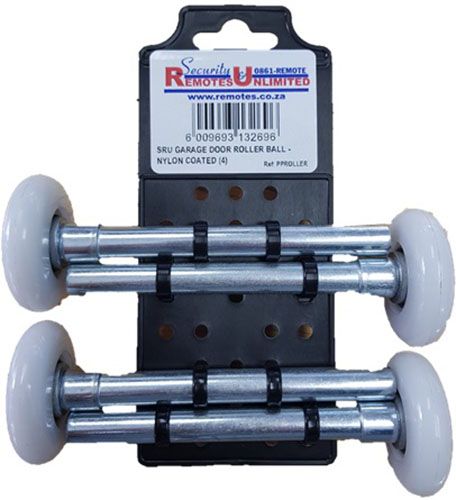
What makes them stand out: Chamberlain has a long-standing reputation in the garage door world. Their rollers are designed for optimal performance and durability, crafted with precision.
Why they’re highly rated: Many users commend their nylon rollers for their ultra-quiet operation. Besides, the brand’s dedication to quality assurance ensures that customers get a product that lasts.
LiftMaster Steel Rollers
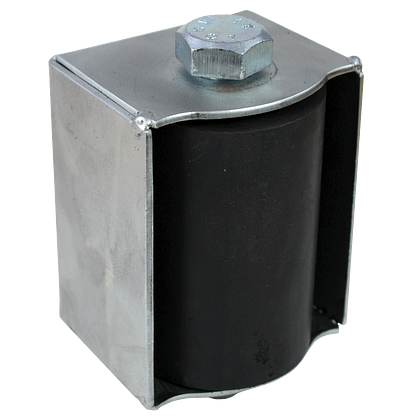
What makes them stand out: Recognized for their heavy-duty design, LiftMaster’s steel rollers are robust, rust-resistant, and built to withstand the test of time.
Why they’re highly rated: Commercial spaces and homeowners with weighty garage doors often appreciate the sheer strength and resilience these rollers offer. Their ability to bear substantial weight while maintaining smooth operation has earned them numerous accolades.
National Hardware Roller Kits
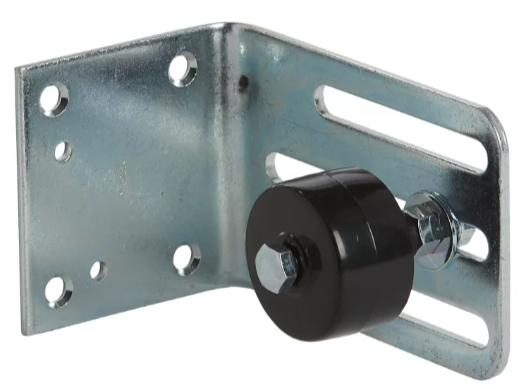
What makes them stand out: National Hardware stands out for offering comprehensive roller kits. These kits come with everything you need for a complete overhaul, ensuring compatibility and ease of installation.
Why they’re highly rated: The convenience factor is massive here. Users appreciate the all-in-one approach, making replacements straightforward. The brand’s nylon rollers also receive praise for their smooth and silent operation.
DURA-LIFT Ultra-Life Rollers
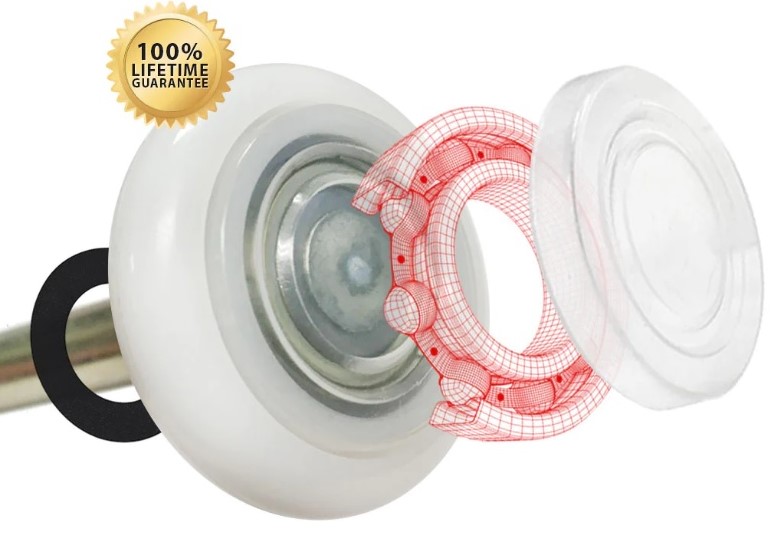
What makes them stand out: DURA-LIFT has carved a niche with their Ultra-Life series, which boasts sealed bearing designs. These rollers are not only durable but also self-lubricating, reducing maintenance.
Why they’re highly rated: Users are often pleasantly surprised by the longevity these rollers offer. The sealed bearing design is a hit, with many highlighting the minimal maintenance needed and the consistent performance over the years.
Conclusion
Choosing the right garage door roller can make the difference between a door that operates seamlessly and one that gives you daily headaches. It’s an integral component that determines the efficiency, noise level, and longevity of your garage door system. With the array of options available, making the right choice might seem difficult. However, by understanding the needs of your garage door, considering environmental factors, and keeping maintenance in mind, you can find a roller that ensures smooth and hassle-free operation for years to come. In the end, the right investment in today’s roller can save you from tomorrow’s troubles.
FAQs
How often should I replace my garage door rollers?
Typically, garage door rollers last between 3-7 years, depending on the material and frequency of use. However, it’s wise to inspect them annually and look for signs of wear or damage.
Can I replace the rollers myself, or should I hire a professional?
While many DIY enthusiasts undertake roller replacement as a weekend project, it’s crucial to understand the risks. If not done correctly, it can lead to more damage or potential injuries. If you’re unsure, it’s always best to hire a professional.
Are nylon rollers better than steel rollers?
Both have their merits. Nylon rollers are quieter and don’t require lubrication. On the other hand, steel rollers tend to be more durable and can handle heavier doors. The best choice depends on your door’s weight and your preference for maintenance and noise levels.
Why are my garage door rollers noisy even though they’re new?
If your new rollers are making noise, they might not be properly lubricated, or there could be an alignment issue with the track. It’s also possible that the rollers might not be the right fit for your door type.
Is there a significant price difference between nylon and steel rollers?
Generally, nylon rollers tend to be slightly more expensive than basic steel rollers, mainly because they offer quieter operation. However, prices can vary based on the brand and specific features, such as sealed bearings.




